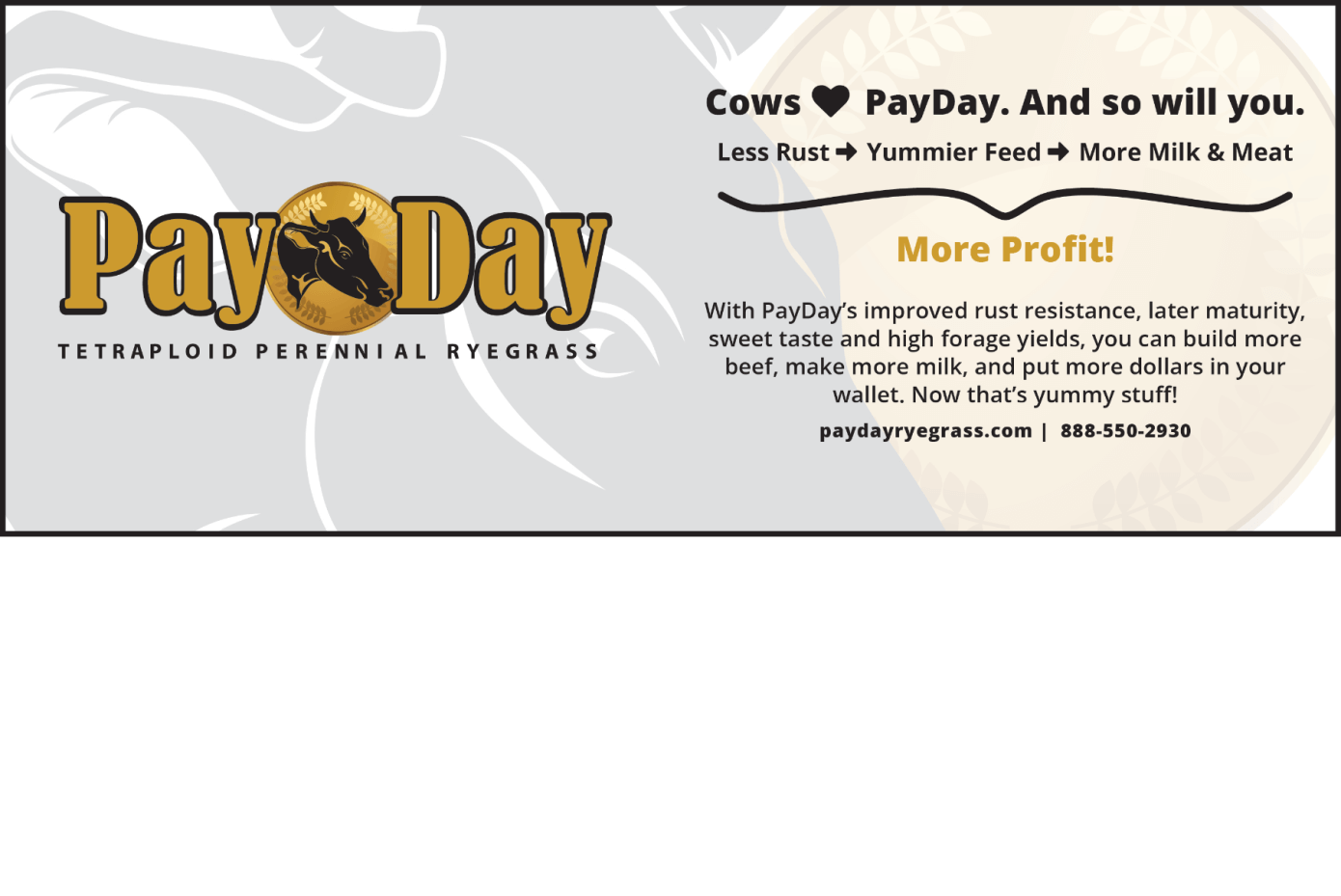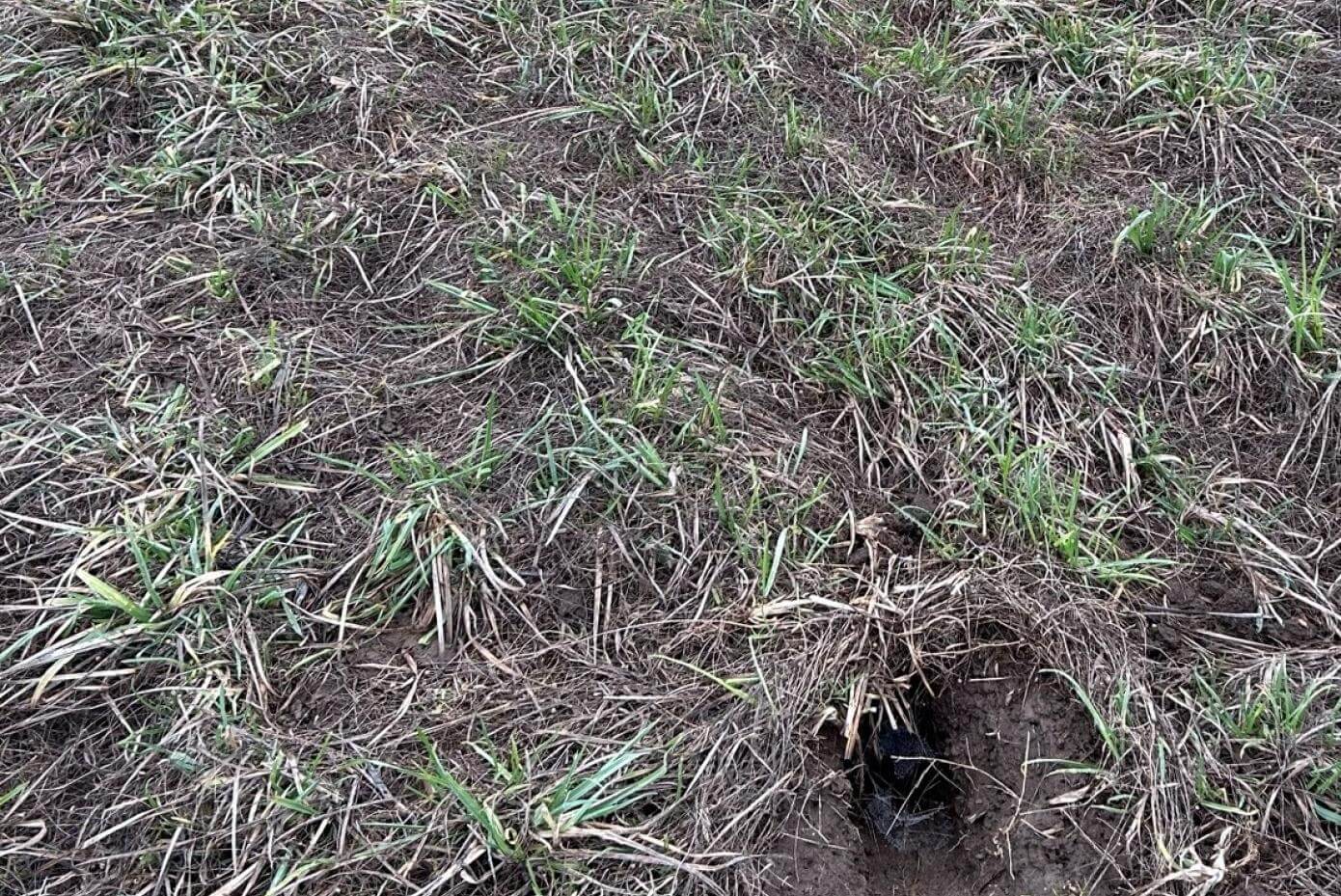Crop Comments
As some of you are aware, it has been a cold fall and winter in the Willamette Valley following a dry fall. While it is too early to know for sure how this will affect the 2023 crops, we have these late February observations to share:
- Fall planted/perennial crops are all still very small with minimal growth, because of the cold fall/winter. 2–3-year-old perennial ryegrass stands seem to have taken a beating.
- The establishment in annual ryegrass fields is patchy in some areas where growers tried to control sprout. Remains to be seen if those areas will fill in this spring.
- There seems to be a good interest from farmers in spring planted crops, especially for rotation crops.
- The outlook on fall seeded clovers is not good.
- There is no shortage of field mice.
PayDay Tetraploid Perennial Ryegrass: Good Stuff!
Are you looking to add a more winter-hardy, late-maturing forage perennial ryegrass to your lineup? Look no further than our PayDay Tetraploid Perennial Ryegrass. PayDay brings these key benefits to the farm:
Better Cold Tolerance
PayDay has shown itself to be more cold tolerant than numerous other ryegrasses. In the 2014-15 University of Wisconsin forage trials, only PayDay and one other ryegrass variety survived after the first year.
Improved Rust Resistance
Rust not only reduces forage yield and quality, it frankly tastes nasty! PayDay’s improved rust resistance means longer stand life, higher yields, and better gains for grazing animals, as well as those consuming harvested feed in forms of hay and silage.
Great Yields and Persistence
PayDay has been bred for improved persistence and high forage yield. This means farmers can count on high yields for many years, bringing more profit in both forage production and reduced replanting cost. Whether using for hay, dairy silage, beef or horse pastures, rotational grazers and mechanical harvesters will all appreciate this high-profit forage.
High Forage Quality
PayDay has wider leaves, twice the chromosomes, and higher sugar content, making it sweeter and highly digestible for grazing animals. Faster digestibility and more upright growth also make it an excellent choice for use in hay and silage production.
Of particular interest to high production dairies, Penn State data shows that Payday had the top TTNDFD score two years in a row (2017-2018). TTNDFD test predicts the proportion of total NDF that will be digested throughout the entire digestive process.
Learn more and see plenty of data on PayDay at www.paydayryegrass.com. Contact your Smith Seed Representative for pricing and availability.

